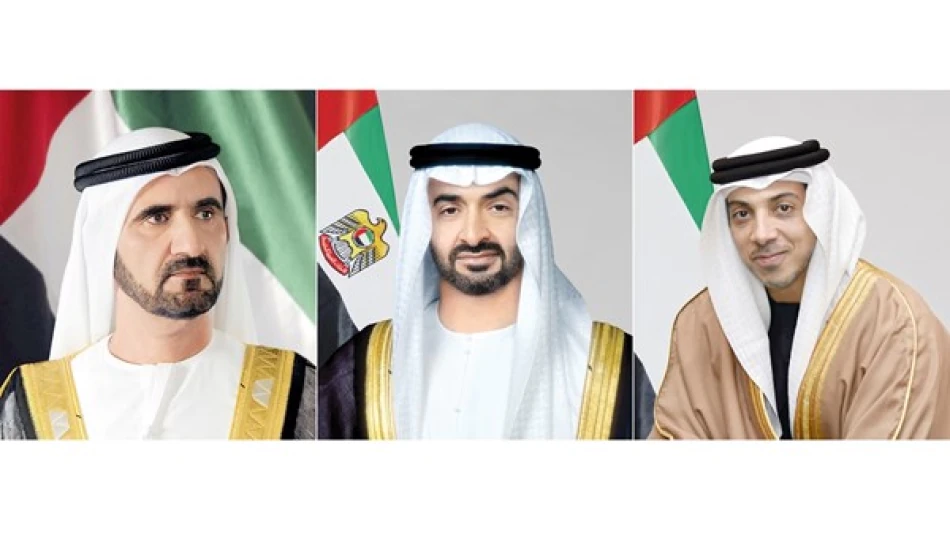
UAE Leaders Express Condolences on Passing of Princess Jawaher's Mother
UAE Leadership Extends Condolences to Saudi Arabia Following Royal Family Loss
The United Arab Emirates' top leadership has sent formal condolences to Saudi Arabia's King Salman bin Abdulaziz Al Saud following the death of the mother of Princess Jawaher bint Musaed bin Saud bin Abdulaziz Al Saud, reinforcing the strong diplomatic ties between the two Gulf powerhouses at a time when regional cooperation remains crucial for economic and security stability.
High-Level Diplomatic Outreach
UAE President Sheikh Mohammed bin Zayed Al Nahyan led the condolence efforts, sending a personal telegram to King Salman expressing his sincere sympathies over the loss. The gesture was echoed by other senior UAE officials, including Vice President and Prime Minister Sheikh Mohammed bin Rashid Al Maktoum, who also serves as Dubai's ruler, and Deputy Prime Minister Sheikh Mansour bin Zayed Al Nahyan.
The coordinated response from multiple UAE leadership figures underscores the importance both nations place on maintaining close personal and institutional relationships at the highest levels of government.
Strengthening Gulf Unity Through Personal Diplomacy
Beyond Protocol: Strategic Relationship Building
While condolence messages might appear routine, such high-level diplomatic courtesies serve a broader strategic purpose in Gulf politics. The UAE and Saudi Arabia have increasingly aligned their foreign policy objectives, from regional security concerns to economic diversification initiatives that reduce dependence on oil revenues.
This personal touch in diplomacy reflects a broader trend among Gulf Cooperation Council members, where family-to-family relationships between ruling houses often translate into stronger bilateral cooperation on trade, investment, and security matters.
Economic Implications of Strong UAE-Saudi Ties
The sustained diplomatic warmth between the two nations has tangible economic benefits. Saudi Arabia remains one of the UAE's largest trading partners, with bilateral trade exceeding $20 billion annually. Joint infrastructure projects, including the planned railway connection between the countries, depend on this kind of consistent high-level engagement.
For international investors and multinational corporations operating in the region, the stability of UAE-Saudi relations provides predictability for long-term business planning and cross-border investments. The relationship also influences regional financial markets, where geopolitical stability often drives investor confidence in Gulf-based assets and sovereign wealth fund strategies.
Regional Context and Future Outlook
This diplomatic exchange occurs against the backdrop of ongoing regional challenges, including economic pressures from global energy transitions and security concerns across the Middle East. The consistent personal engagement between UAE and Saudi leadership suggests both nations recognize that their individual success increasingly depends on regional stability and cooperation.
The formal nature of these condolences, involving multiple senior officials, signals that both countries continue to prioritize their bilateral relationship as a cornerstone of their broader regional strategy, potentially setting the stage for deeper integration in areas ranging from defense cooperation to joint economic initiatives.
Most Viewed News

 Layla Al Mansoori
Layla Al Mansoori






